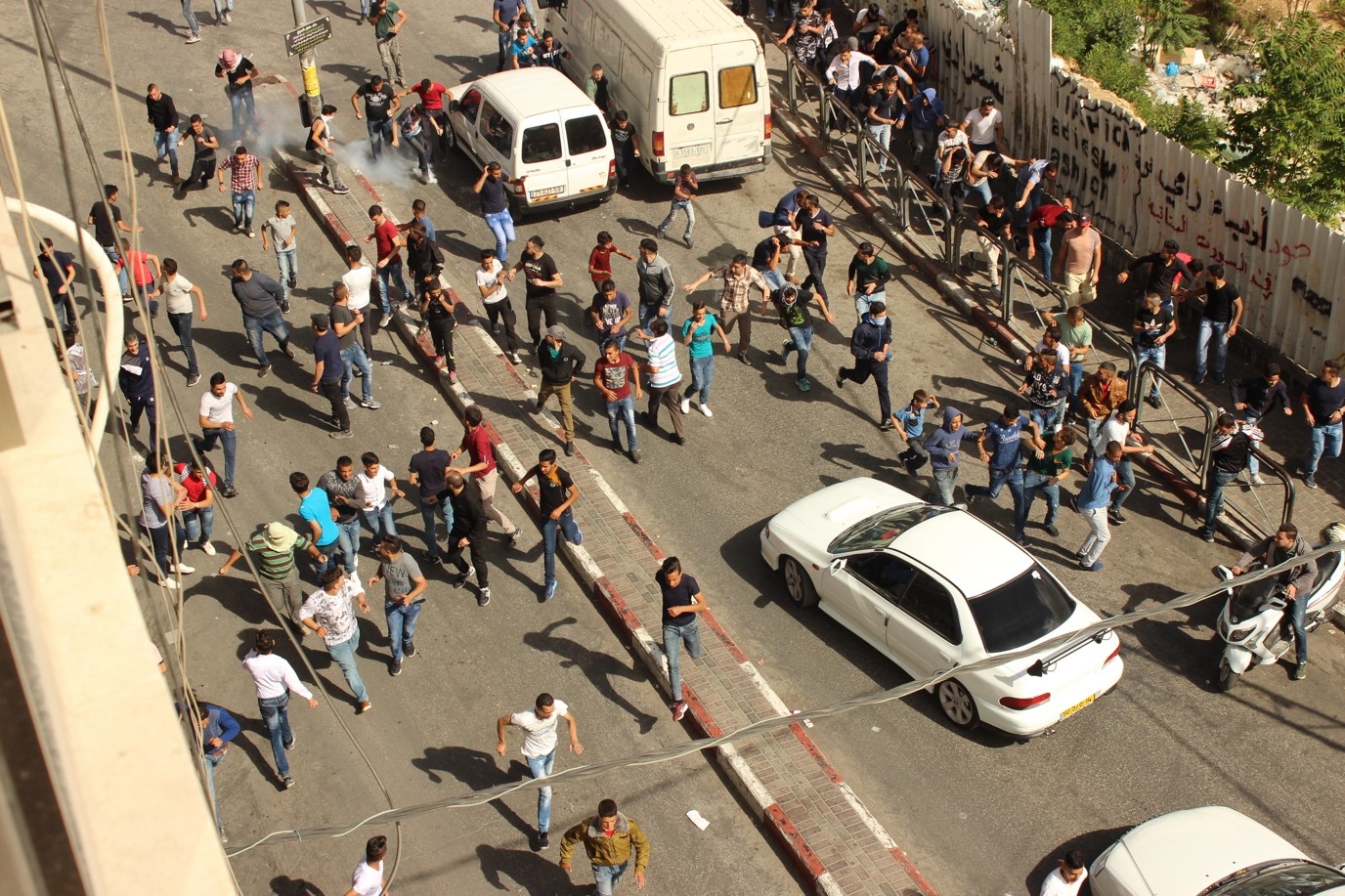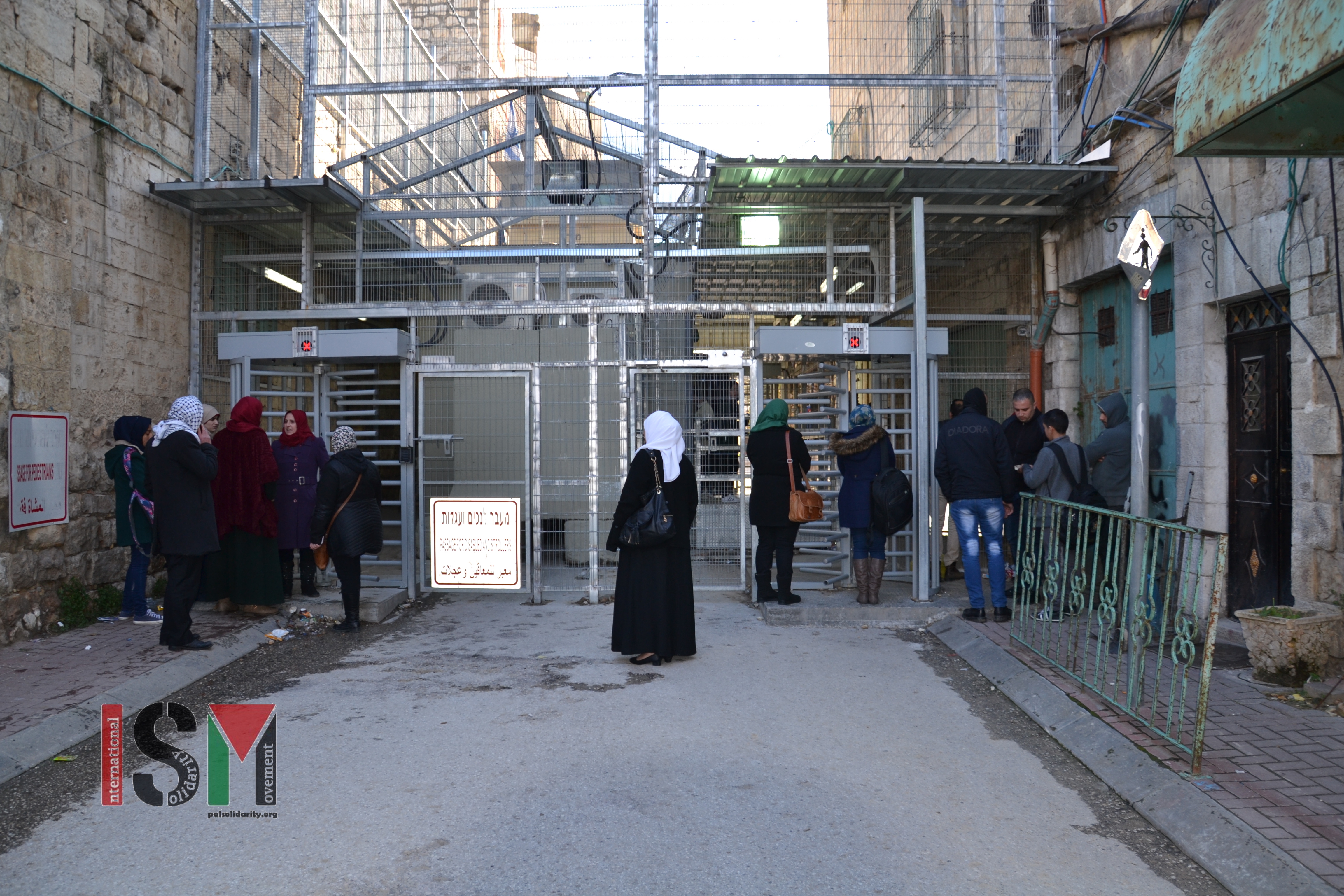Category: Features
-
Major clashes as hundreds demonstrate in solidarity with prisoners’ hunger strike
Clashes broke out yesterday in the centre of Hebron as a peaceful demonstration was met with heavy armed resistance from Israeli soldiers and border police. Demonstrators run from tear gas during today’s march in Hebron Hundreds gathered outside Hebron’s football stadium at 1pm before marching down Ein Sarah street towards Ibn Rushd square,…
-
Teenager beaten and dragged off the street by soldiers in Hebron
17th May 2017 | International Solidarity Movement, Khalil Team | al-Khalil (Hebron), occupied Palestine A Palestinian teenager was attacked in the street today by Israeli forces as he made his way through Hebron’s Old City. While talking with an NGO worker, the 18-year old was rushed by soldiers and beaten in broad daylight. Bleeding, he was…
-
Checkpoints for humiliation: a journal piece
4th April 2017 | International Solidarity Movement, al-Khalil team | Hebron, occupied Palestine Earlier this month, an international woman was ordered to ‘take off her clothes’ after setting off the alarm whilst passing the metal detector at Shuhada checkpoint, occupied al-Khalil (Hebron). This is a personal journal of the events. Humiliation, harassment, intimidation – a…



